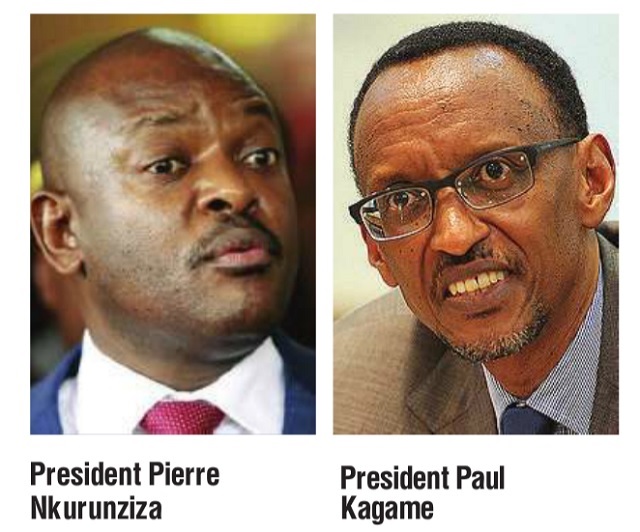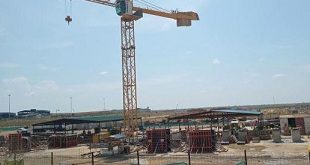
Burundi is also once again a marginal recipient of Rwanda exports, accounting for US$ 3.22 million according to Q1 data or 11% of the US$27.34 worth of goods that Kigali exported to fellow East African Community (EAC) member states over the period. Uganda took up 16% of Rwanda exports and Kenya 75%. Exports to the EAC comprise about 40% of Rwanda’s total.
Burundi is, however, a small but significant destination of Rwanda re-exports; accounting for about 11% in the first quarter of 2016. Statistics from the National Bank of Rwanda in August indicated that these export figures to Burundi indicated a declining trend of 27.2% between 2014 and 2015. Despite the decline, however, the impact on Rwanda’s total cross-border exports within the EAC was a negligible 7% fall over the same period. The value of Rwanda’s exports to the EAC fell to US$100.5 million in 2015 compared to US$107.5 million in 2014.
Based on this, the Burundi ban will likely have minimal effects on Kigali. Kigali’s position is that, with the export ban, Bujumbura is suffocating itself. That is the point that Rwanda’s Minister of Trade and Industry, Francois Kanimba, specifically made to journalists in Kigali.
“I don’t think there can be severe negative implications of the Burundian ban for Rwanda because the supplies that came from there can be sourced from other countries,” he is quoted to have said.
Following the ban, fruit prices are reported to have risen in Rwandan markets, especially in Kigali. According to some reports, the price of mangoes and oranges rose by over 100%. But statistics show that Rwanda is already turning to Uganda and Tanzania for items previously got from Burundi. Although the costs of importing from Tanzania and Uganda are relatively higher, the prices in the markets should ease gradually as the routes become more established and efficient.
On the other side of the border, farmers and traders are already feeling the pinch as they are stuck with unsold and decomposing fruits and vegetables.
“I grow and sell tomatoes, onions and other vegetables in Rwanda. My tomatoes are getting rotten in fields because we are not allowed to sell any food items in Rwanda,” said a man identified by a local online newspaper as Generose Nisabwe of Cibitoke province which borders Rwanda.
He appealed to the government of Burundi to lift its ban on Rwanda most of people living near the border with Rwanda sell their food products in Rwanda. He said produce prices had dropped dramatically.
“A bag of eggplants that was purchased at 12,000 Burundi francs (US$7.13) is now purchased only at 2,000,” said another farmer identified as Raphael Berahino by the same news source. Berahino lamented that as the new school year starts in, many parents would not be able to their children to school because they will not have money buy school uniforms, school materials, and pay school fees.
The trade ban is a culmination of chilling relations between Burundi’s President Nkurunziza and Rwanda Paul Kagame. But relations between them have not always been this frosty. When Nkurunziza made his first bid for the presidency in 2005, Kagame backed him.
Like many observers at the time, Kagame possibly viewed Nkurunziza as a well-intention leader who would be much easier to work with than the alternative, former Burundian leader Pierre Buyoya. Rwanda businesses invested heavily in Burundi.
Trouble between Kigali and Bujumbura soon simmered in October 2013 over Bujumbura’s alleged hand in propping up forces opposed to M23 rebellion, an armed group that operated in eastern Congo with alleged implicit support from Kigali.
It was quashed by a joint force of Tanzanian and South African armed forces working with the United Nations stabilisation force in DR Congo (MONUSCO).
The crisis was deepened in 2015 when Nkurunziza declared a fresh bid for the president in a move that was internally opposed, led to a split within his army and civilian supporters, and culminated in almost total civil war. Hundreds were killed, first in fighting between pro-and anti-Nkurunziza forces and militias, and later in a purge of the opposition elements launched by Nkurunziza. Thousand more fled to become refugees in Rwanda and Tanzania.
Commentators currently do not see prospects of quick resolution of the Burundi crisis. This has been compounded by Burundi’s refusal to accept an African Union peace-keeping force and the likelihood of both Nkurunziza and Kagame remaining in power in their respective countries throughout the foreseeable future.
After taking an initial lead in attempting to resolve the crisis, leaders of the EAC member states; especially President Yoweri Museveni of Uganda, appear to have stepped away. Instead, all eyes are now on Tanzania’s John Pombe Magufuli and the African Union leadership.
Whichever way it is looked at, Nkurunziza’s decision to ban trade with Rwanda in July will leave the Burundian economy weaker. Depending on the extent, according to some analysts, Nkurunziza could be falling straight into President Kagame’s ambition to have either regime change or a further weakened leadership in Bujumbura.
****
editor@independent.co.ug
 The Independent Uganda: You get the Truth we Pay the Price
The Independent Uganda: You get the Truth we Pay the Price



